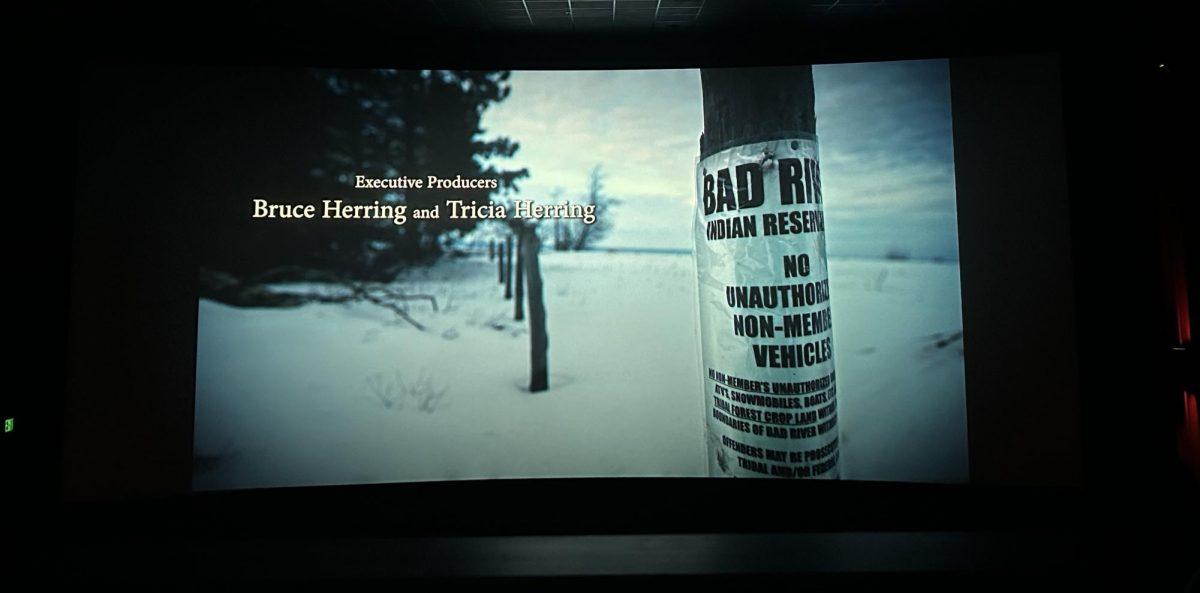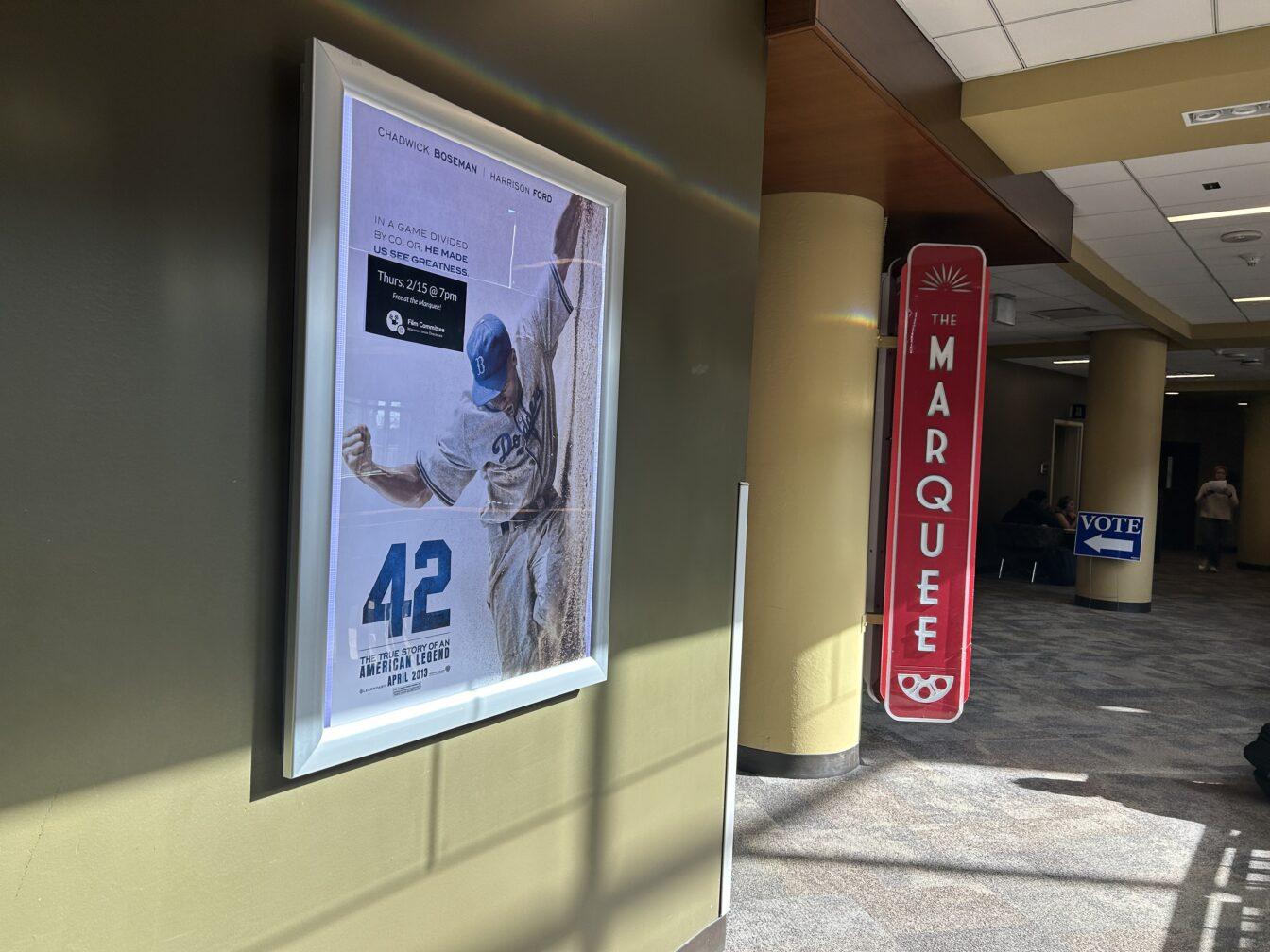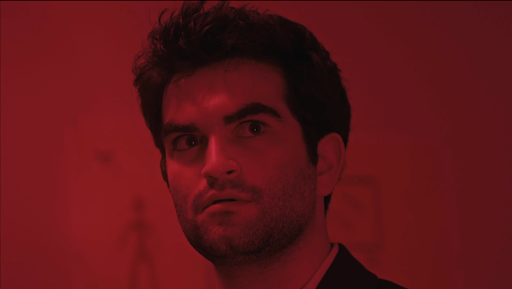Meryl Streep does what she can with a poorly constructed overview of the highlights of Margaret Thatcher’s career as the first female prime minister of the United Kingdom in director Phyllida Lloyd’s “The Iron Lady.”
Margaret Thatcher (Streep, “It’s Complicated”) is losing her mind to dementia. Her dead husband (Jim Broadbent, “Harry Potter and the Deathly Hallows: Part 2”) continues to pester her, Thatcher’s daughter and staff are becoming a nuisance to her, and the only comfort she finds is in doing things herself despite being told she can’t. Trying to maintain her independence, Thatcher begins remembering her life as a strong-willed Conservative prime minister who stood strong against those who didn’t share her beliefs. She often talks as if she is still premier but knows deep down she’s now viewed as a helpless old woman. However, she is not angry to be in such a state; rather, she is just trying to hang on to her old self, but she knows deep down she is a defeated woman.
Streep plays Thatcher as one of the most powerful and driven women on the planet. Streep’s booming voice and proud stature brings out the strength of Thatcher as a politician as she rails on the opposing Labour Party and boldly commands those around her. The writing of her character, however, cripples the role, posing Thatcher as nothing but a screaming head against everyone not supporting her. While scenes of a younger Thatcher running for lower office try to show her roots as a motivated grocer’s daughter, the attempts to add depth fall flat as the film changes gears on a whim. One minute it’s trying to portray Thatcher as an absent mother, the other a successful politician, and then back again. The film devotes no time to securing who exactly Thatcher is, instead relying completely on Streep’s acting to anchor down a solid character. While Streep does her best, poor dialogue and flow impede her ability to shine.
The biggest problem with the film is that it can’t make up its mind whether it’s a docudrama or character study. Scenes of Thatcher’s career are too disconnected for it to be a proper recounting of her time in office alone. Yet there is little to show for Thatcher’s character as a whole besides the disconnected storyline of her descent into dementia. Cutaways to Thatcher’s memories have very little rhyme or reason, often throwing the audience between present day and the past. Historical events seem to be in order but are completely unexplained, as shown in scenes of Thatcher standing strong against protesters who are angry at her for untold reasons. This may be an attempt to appeal to an older audience who remembers her time in office, but the disorganization cripples the entire narrative structure.
Supporting characters may as well be non-existent alongside Streep and Broadbent. Their presence and dialogue do nothing but extend the film’s length and try to build Thatcher’s character, adding nothing themselves. Nicholas Farrell (“Late Bloomers”) does a fine job with his short-lived role as an advisor to Thatcher, but no other characters, from Thatcher’s cabinet members to her daughter, feel real or important.
The fast-paced music throughout the film keeps the audience awake during dull scenes and is often used over shots of Thatcher walking boldly through the Palace of Westminster. The mood of the film has a surprising lack of urgency regarding political tensions at the time. Almost nothing about the Cold War nor the UK’s international relationships is mentioned, save an out of place scene where Streep’s head has been digitally put on Thatcher’s body in her famous dance with former President Reagan.
The overall message of the film is introduced completely out of left field at the end of the movie, painting Thatcher as a heartless woman who is now completely inept, her mind decaying along with her purpose in life. The rest of the film tries to be a tribute to Thatcher and instead throws dirt in her face in a last-ditch effort to add depth.
Lack of focus, purpose and organization drive “The Iron Lady” into a wall of disappointing loose ends and a pitiful message. The shallowness of the film is a massive let down after the promise of a brilliant performance by Streep. It sounds oddly like another film from the Weinstein Company just months ago.

























